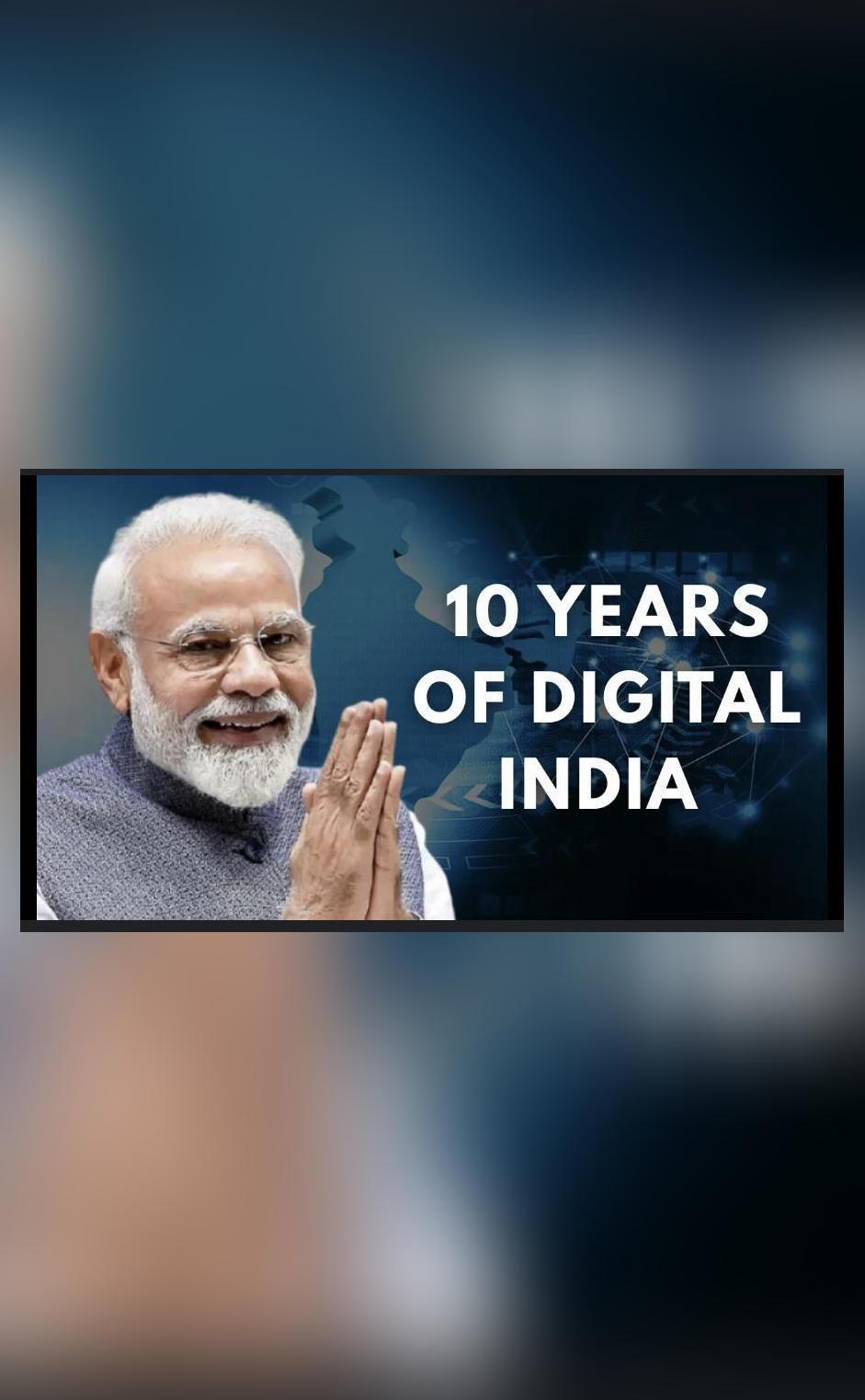
Title: 10 years of Digital India: Milestones in tech, health & education
As India celebrates the 10th anniversary of the Digital India initiative, Prime Minister Narendra Modi took to the stage to highlight the country’s remarkable progress in transforming into a digitally empowered society. Launched in 2015, the Digital India program aimed to bridge the digital divide and make technology more accessible and inclusive for all Indians. Over the past decade, the initiative has achieved significant milestones in education, healthcare, MSMEs, and AI, propelling India’s startup ecosystem and cementing its position as a leader in the global digital landscape.
One of the most significant achievements of Digital India is its impact on education. The initiative has focused on developing digital infrastructure, such as high-speed internet connectivity, in schools and colleges across the country. This has enabled students to access educational resources, participate in online classes, and engage in collaborative learning activities. The government has also launched several initiatives, such as the National Digital Literacy Mission, to equip students with digital skills and make them digitally literate.
In the healthcare sector, Digital India has made significant strides in leveraging technology to improve healthcare outcomes. The initiative has focused on developing digital healthcare infrastructure, such as telemedicine platforms, electronic health records, and mobile health applications. These platforms have enabled patients to access healthcare services remotely, reducing the burden on healthcare infrastructure and improving access to quality healthcare.
Digital India has also had a transformative impact on MSMEs (Micro, Small, and Medium Enterprises), which are the backbone of India’s economy. The initiative has focused on developing digital platforms, such as the Government e-Marketplace (GeM) and the Open Network for Digital Commerce (ONDC), to connect MSMEs with customers, suppliers, and buyers. These platforms have enabled MSMEs to access new markets, reduce costs, and improve their competitiveness.
Another significant area of progress is Artificial Intelligence (AI). India has made significant strides in developing AI capabilities, with a focus on developing applications that can benefit society as a whole. The government has launched several initiatives, such as the $1.2 billion AI Mission, to develop AI capabilities and applications in areas such as healthcare, education, and agriculture.
Affordable GPU access is another major achievement of Digital India. Graphics Processing Units (GPUs) are critical components of AI systems, and their availability has been a major bottleneck in India’s AI development. The government has launched several initiatives to make GPUs more affordable and accessible, enabling Indian startups and researchers to develop AI applications.
In addition to these achievements, Digital India has also made significant progress in other areas, such as fintech, e-commerce, and cybersecurity. The initiative has enabled the growth of India’s fintech sector, with the emergence of new payment platforms and digital wallets. E-commerce has also seen significant growth, with online marketplaces connecting consumers with sellers across the country. Cybersecurity has become a major focus area, with the government launching several initiatives to protect Indian digital infrastructure from cyber threats.
Looking ahead, India aims to lead the world with a humanity-first approach to technology. The government has launched several initiatives to develop AI applications that can benefit society as a whole, such as applications in healthcare, education, and agriculture. India also aims to develop its own AI talent pool, with a focus on developing AI capabilities that can be used to solve real-world problems.
In conclusion, the 10th anniversary of Digital India marks a significant milestone in India’s journey towards becoming a digitally empowered society. The initiative has achieved significant milestones in education, healthcare, MSMEs, and AI, and has enabled India’s startup ecosystem to thrive. As India looks ahead, it is clear that the country is poised to lead the world with a humanity-first approach to technology, using AI to solve real-world problems and benefit society as a whole.





